Filter by
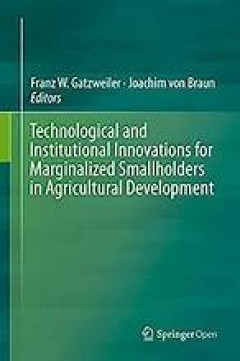
Technological and Institutional Innovations for Marginalized Smallholders in …
The aim of the book is to present contributions in theory, policy and practice to the science and policy of sustainable intensification by means of technological and institutional innovations in agriculture. The research insights re from Sub-Saharan Africa and South Asia. The purpose of this book is to be a reference for students, scholars and practitioners inthe field of science and policy for…
- Edition
- 1
- ISBN/ISSN
- 978-3-319-25718-1
- Collation
- -
- Series Title
- -
- Call Number
- XV, 435
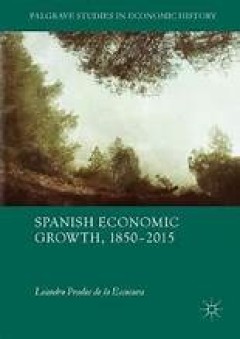
Spanish Economic Growth, 1850–2015
This book is open access under a CC BY 4.0 license. This text offers a comprehensive and nuanced view of the economic development of Spain since 1850. It provides a new set of historical GDP estimates for Spain from the demand and supply sides, and presents a reconstruction of production and expenditure series for the century prior to the introduction of modern national accounts. The author …
- Edition
- 1
- ISBN/ISSN
- 978-3-319-58042-5
- Collation
- -
- Series Title
- Palgrave Studies in Economic History
- Call Number
- XXIV, 383

Agriculture for Economic Development in Africa
This book explores the role of agriculture in long-term economic growth. With a particular focus on Ethiopia, the role of the state in igniting agricultural growth and in sustaining economic growth is highlighted as essential for low-income countries. Taking ideas from both economic history and development economics, the ability of Ethiopia and the rest of Africa to sustain recent rapid growth …
- Edition
- -
- ISBN/ISSN
- 978-3-031-07901-6
- Collation
- -
- Series Title
- -
- Call Number
- -

Socio-Technical Innovation Bundles for Agri-Food Systems Transformation
This open access book is the result of an expert panel convened by the Cornell Atkinson Center for Sustainability and Nature Sustainability. The panel tackled the seventeen UN Sustainable Development Goals (SDGs) for 2030 head-on, with respect to the global systems that produce and distribute food. The panel’s rigorous synthesis and analysis of existing research leads compellingly to multiple…
- Edition
- 1
- ISBN/ISSN
- -
- Collation
- -
- Series Title
- Sustainable Development Goals Series
- Call Number
- XXXIX, 195

Indian Agriculture Towards 2030
This open access book brings together varying perspectives for transformational change needed in India’s agriculture and allied sectors. Stressing the need of thinking for a post-Green Revolution future, the book promotes approaching this change through eight broad areas, indicating the policy shifts needed to meet the challenges for the coming decade (2021-2030). The book comprises of ten…
- Edition
- 1
- ISBN/ISSN
- -
- Collation
- -
- Series Title
- India Studies in Business and Economics
- Call Number
- XV, 311

Agricultural Development in Asia and Africa
This Open Access book explores the multifaceted nature of agricultural and rural development in Asia and examines the extent to which the Asian experience is being replicated in contemporary Africa. This volume compiles the works of top scholars who provided analyses and evidences from household-level surveys collected for many years in several parts of Asia and Africa. The most important findi…
- Edition
- 1
- ISBN/ISSN
- 978-981-19-5542-6
- Collation
- -
- Series Title
- Emerging-Economy State and International Policy Studies
- Call Number
- -
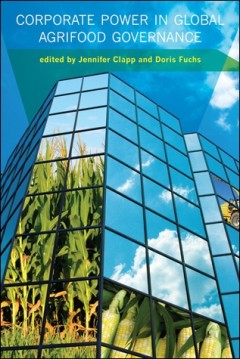
Corporate Power in Global Agrifood Governance
Here, experts examine the ways transnational corporations exercise power over governance of the global food system and the implications this has for sustainability.OCLC-licensed vendor bibliographic record.
- Edition
- -
- ISBN/ISSN
- 9780262255509
- Collation
- 1 online resource (xix, 308 pages) :illustrations.
- Series Title
- -
- Call Number
- -

Food routes:growing bananas in Iceland and other tales from the logistics of …
Finding opportunities for innovation on the path between farmer and table. Even if we think we know a lot about good and healthy food--even if we buy organic, believe in slow food, and read Eater --we probably don't know much about how food gets to the table. What happens between the farm and the kitchen Why are all avocados from Mexico Why does a restaurant in Maine order lamb from New Zealand…
- Edition
- -
- ISBN/ISSN
- 9780262352185
- Collation
- 1 online resource (x, 195 pages).
- Series Title
- -
- Call Number
- -
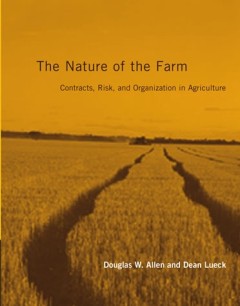
The nature of the farm :contracts, risk, and organization in agriculture
The Nature of the Farm is a theoretical and empirical study of contracts and organization in agriculture based on the transaction cost framework. Transaction costs are important in agriculture because nature (for example, seasonality, weather, pests) plays such a critical role in determining output and limiting the ability of farmers to specialize. The book develops specific models and tests th…
- Edition
- -
- ISBN/ISSN
- 9780262267014
- Collation
- 1 online resource (viii, 258 pages)
- Series Title
- -
- Call Number
- -
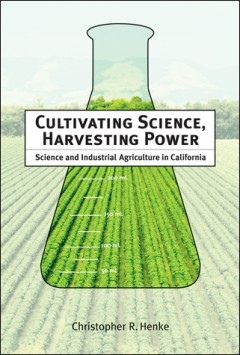
Cultivating science, harvesting power : Science and Industrial Agriculture in…
Christopher R. Henke reveals how agricultural scientists and growers in California have cooperated - and struggled - in shaping the state's multi-billion-dollar farm industry.
- Edition
- -
- ISBN/ISSN
- -
- Collation
- 1 online resource (xi, 226 pages) :
- Series Title
- -
- Call Number
- -
 Computer Science, Information & General Works
Computer Science, Information & General Works  Philosophy & Psychology
Philosophy & Psychology  Religion
Religion  Social Sciences
Social Sciences  Language
Language  Pure Science
Pure Science  Applied Sciences
Applied Sciences  Art & Recreation
Art & Recreation  Literature
Literature  History & Geography
History & Geography